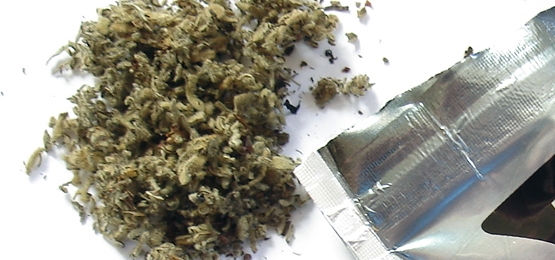
An article in LiveScience reports that more than 100 people in five states have ended up in the hospital or even losing their lives after smoking synthetic marijuana. Experts believe the drug is tainted by rat poison that caused severe bleeding in users.
The first such incidents took place at the start of March 2018. Before the end of the month, the local newspaper Chicago Tribune reported the number of victims have reached 22.
During those early days, authorities remained in the dark regarding the identity of the contaminant responsible for the bleeding. Both anti-coagulants and blood thinners were considered prime suspects. (Related: A look at the evolving relationship surrounding medical marijuana vs. opioid deaths.)
On March 31, Illinois health officials reported that the anticoagulant called brodifacoum had been detected in some of the patients. Brodifacoum is commonly used as an active ingredient in rat poison. Anticoagulants stop blood from clotting, which results in uncontrollable bleeding.
By the time that discovery was made, all of the patients were coughing up blood, passing blood through their pee, and bleeding from their noses and gums. They were transferred to hospitals for treatment.
After the death of a third patient, Illinois Department of Public Health (IDPH) director Dr. Nirav Shah warned that the number of cases were rising every day. He warned that synthetic cannabinoids are unsafe and should be avoided.
"While efforts are underway to get the contaminated drugs out of circulation, it's possible they could re-emerge," warned Shah.
The Centers for Disease Control and Prevention (CDC) recently issued a nationwide warning for all health professionals to get ready for patients who reported intense yet inexplicable bleeding. The likelihood of those patients being synthetic marijuana users suffering from brodifacoum poisoning is considered to be high.
As of April 10, 2018, there are 166 cases in five states. Most are in Illinois, with a couple of incidents also showing up in Indiana, Maryland, Missouri, and Wisconsin. Three deaths have been reported so far.
Synthetic marijuana uses artificial substitutes for THC in cannabis
Also known as K2 or Spice, synthetic marijuana is produced by dozens of laboratories in China, the U.S., and Eastern Europe. It is not regulated by authorities, so users have no idea what chemicals get added into the synthetic pot they're smoking.
Despite its name, it is not a replacement for marijuana. Synthetic marijuana got called as such because its ingredients are sort of similar to tetrahydrocannabinol (THC), the psychoactive ingredient in the cannabis plant responsible for the mind-altering effects of marijuana.
The synthetic cannabinoids have similar hallucinogenic effects. These substances are sprayed onto plant-based products, which are then wrapped in foil and marketed as "synthetic marijuana," "herbal incense," or "potpourri" at convenience stores, gas stations, and online shops.
Users burn the synthetic pot to generate smoke. Liquid versions can be inhaled via e-cigarettes and vaporizers.
Because they are not being regulated, there is nothing stopping drug producers from using different kind of chemicals every time they make a new batch of synthetic marijuana. This means the symptoms of their products can vary from time to time.
Furthermore, synthetic cannabis makers deliberately label their substance as unfit for human consumption in a blatant attempt to skirt state and federal laws that prohibit these kinds of products.
The Drug Enforcement Agency (DEA) warns that abuse of synthetic cannabinoids can lead to overdose-related deaths, including death through heart failure. The CDC links the use of synthetic marijuana to several cases of acute damage to kidneys that resulted in hospitalization and required dialysis.
Stay aware of the dangers of synthetic marijuana and other addictive drugs at Addiction.news.
Sources include:
Please contact us for more information.


















